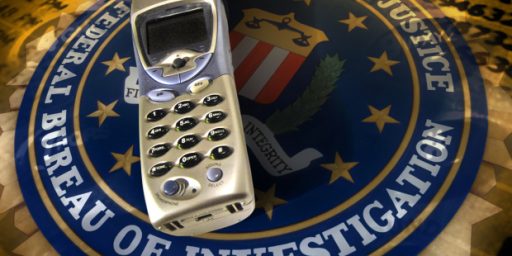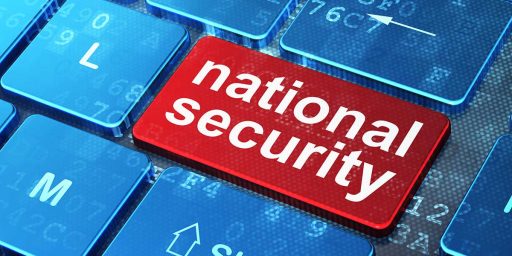FBI Seeks Internet Wiretap Ability
Easier Internet Wiretaps Sought
The Justice Department wants to significantly expand the government’s ability to monitor online traffic, proposing that providers of high-speed Internet service should be forced to grant easier access for FBI wiretaps and other electronic surveillance, according to documents and government officials.
A petition filed this week with the Federal Communications Commission also suggests that consumers should be required to foot the bill.
Law enforcement agencies have been increasingly concerned that fast-growing telephone service over the Internet could be a way for terrorists and criminals to evade surveillance. But the petition also moves beyond Internet telephony, leading several technology experts and privacy advocates yesterday to warn that many types of online communication, including instant messages and visits to Web sites, could be covered.
The proposal by the Justice Department, the FBI and the Drug Enforcement Administration could require extensive retooling of existing broadband networks and could impose significant costs, the experts said. Privacy advocates also argue that there are not enough safeguards to prevent the government from intercepting data from innocent users.
Justice Department lawyers argue in a 75-page FCC petition that Internet broadband and online telephone providers should be treated the same as traditional telephone companies, which are required by law to provide access for wiretaps and other monitoring of voice communications. The law enforcement agencies complain that many providers do not comply with existing wiretap rules and that rapidly changing technology is limiting the government’s ability to track terrorists and other threats.
They are asking the FCC to curtail its usual review process to rapidly implement the proposed changes. The FBI views the petition as narrowly crafted and aimed only at making sure that terrorist and criminal suspects are not able to evade monitoring because of the type of telephone communications they use, according to a federal law enforcement official who spoke on the condition of anonymity.
“Lawfully-authorized electronic surveillance is an invaluable and necessary tool for federal, state and local law enforcement in their fight against criminals, terrorists, and spies,” the petition said, adding that “the importance and the urgency of this task cannot be overstated” because “electronic surveillance is being compromised today.”
I don’t have any philosophical objection to the FBI “wiretapping” telephony, instant messaging, e-mail, and other electronic communications under the same basic rules and restraints as now apply to the telephone. But the idea that the private sector should be required to do expense modifications to the system to make that more technically feasible strikes me as bizarre.





Furthermore, is it possible to make changes to make for easier access for law enforcement that wouldn’t ALSO make for easier access for hackers and terrorists? Or is the FBI the only ones in the world who have the wiretap technology that would be made easier, here?
Also, what sort of “rules and restraints” are there in place right now? Would court orders be required or not – I know there are certain kinds that don’t need them.
—